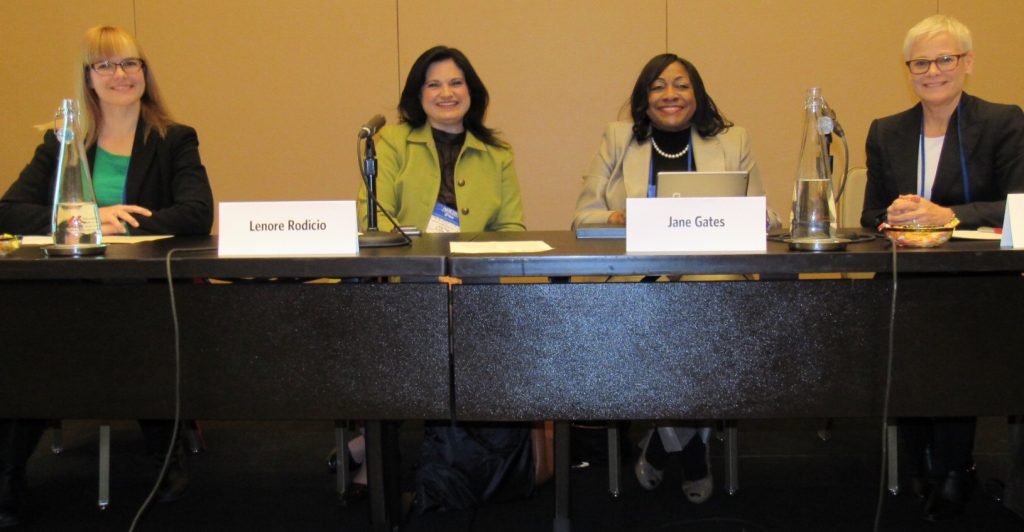
How Higher Ed Leaders Are Making Great Teaching a Priority on Their Campuses
How can institutions ensure that effective instruction is a key component of their student success plans?
That question was at the center of a lively discussion at ACE2017 on Sunday afternoon. In the concurrent session titled Great Teaching Is No Longer Optional, college and university leaders shared fresh insights on how they are implementing new programs designed to improve instruction on their campuses.
Lenore Rodicio, provost at Miami Dade College, said the traditional “menu” of student success initiatives does not address the core teaching and learning that takes place between faculty and students.
“What’s critical is the experience that students have with faculty on a day-to-day basis inside the classroom,” said Rodicio.
Caption: A slide from ACUE’s presentation at ACE2017 shows that many student success initiatives do not directly focus on classroom instruction.
Joining Rodicio were Amy Chasteen, Vice Provost at the University of Southern Mississippi and Jane Gates, Provost of Connecticut State Colleges and Universities, a system of 17 institutions and 85,000 students. All three leaders have implemented ACUE’s online training and credentialing program as part of efforts to improve student outcomes on their campuses.
Panel moderator and ACUE’s Chief Academic Officer Penny MacCormack shared that the dramatic increase in adjunct faculty reinforces the need for a comprehensive training program in effective instruction. “Faculty whose primary responsibility is to teach deserve support to do the job we expect them to do,” she said.
Caption: A slide from ACUE’s presentation at ACE2017 reveals a transformation of the professoriate over the last 40 years.
College and university presidents often express concerns that faculty may bristle at efforts to improve teaching. The panelists said their own reservations quickly dissolved once their faculty had an opportunity to learn about and participate in the program.
“Across the system there is excitement from faculty,” said Gates, the provost of CSCU, which launched ACUE’s program at four campuses in January. “They’re saying ‘Ah here’s a new approach that I haven’t thought about before.’ There is now a waiting list of faculty who want to become a part of this project.”
At Southern Mississippi, Miller said faculty were sold because ACUE’s recommended teaching techniques are steeped in four decades of research. “That was critical for faculty buy-in,” said Miller.
As the discussion came to a close, the panelists discussed the positive impact that their initiatives are having on faculty and students. Rodicio shared a moving story about a seasoned humanities professor who said he struggled for years to engage his students in material for an introductory course. After the professor implemented a series of techniques he learned from ACUE’s Course, Rodicio said he became emotional when talking about how it had improved his classroom.
“The experience literally moved him to tears because for years he’s been teaching and he had never seen that level of engagement.”

